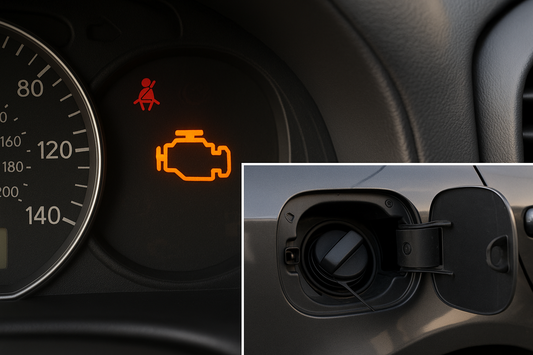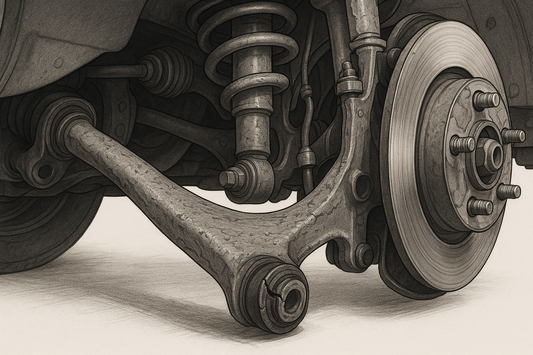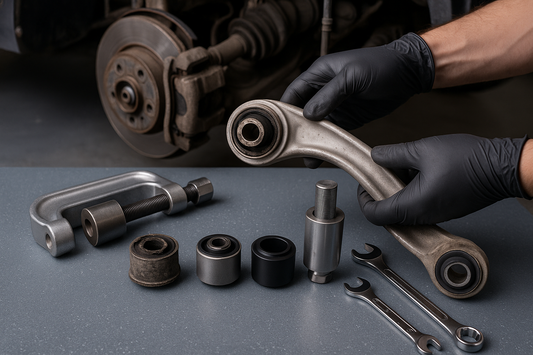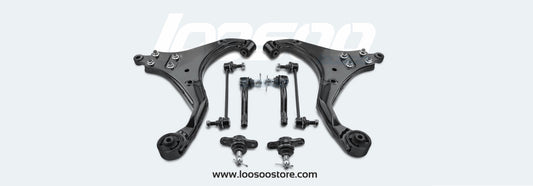The Toyota Sienna like any vehicle, it requires regular maintenance to ensure its braking system remains in top condition. Brake pads are a crucial component of the braking system and it's essential to replace them at the recommended intervals for safety and optimal performance. In this article, we'll explore the signs of worn brake pads, how often you should replace them, the importance of quality brake pads, and some tips for maintaining your Toyota Sienna's braking system.
Signs of Worn Toyota Sienna Brake Pads
Knowing the signs of worn brake pads is crucial for maintaining the safety of your Toyota Sienna. Here are some common indicators that your brake pads may need to be replaced:
Pedal Travel
As brake pads wear down, you may notice an increase in the distance your foot needs to travel to apply the brakes. This could mean the brake pads are worn down and require replacement.
Squeaking or Grinding
If you hear squeaking or grinding noise when you apply the brakes, it's likely due to worn brake pads or debris caught between the pads and rotors. This type of noise should be investigated promptly.
Light or No Brake Response
If your brake pedal feels soft or there's no response when you step on the brakes, it could mean the brake pads have worn down completely. This situation is particularly dangerous and requires immediate attention.
How Often Should You Replace Sienna Brake Pads?
The recommended interval for brake pad replacement depends on several factors, including driving habits, road conditions, and vehicle age. Regularly scheduled maintenance is essential to ensure your brakes are in good working order. Follow your Toyota Sienna's maintenance schedule to determine the optimal time for brake pad replacement. In general, most vehicles require new brake pads every 30,000 to 40,000 miles, but this can vary depending on the vehicle and driving conditions.

Importance of Quality Brake Pads
When replacing your Sienna brake pads, it's essential to use high-quality parts that are designed specifically for your Toyota Sienna. Improperly installed or low-quality brake pads can lead to premature wear of other brake system components, such as rotors or calipers, and may compromise the safety of your vehicle. To ensure longevity and performance, choose brake pads that are made specifically for your Sienna model and are compatible with your brake system components.
Maintaining Your Braking System
In addition to replacing your brake pads at the recommended intervals, there are several things you can do to maintain your Toyota Sienna's braking system:
Regular inspection
Regularly inspect your brake pads and other braking system components, such as rotors and calipers, for signs of wear or damage. Look for uneven wear or damage that could indicate a problem with your brakes.
Tire pressure
Proper tire pressure is crucial for effective braking. Check your tire pressure regularly and adjust if necessary to ensure your brakes work properly.
Brake fluid maintenance
Brake fluid can become contaminated over time, so it's important to check and replace your brake fluid regularly according to the manufacturer's recommendations.
Brake pad replacement
When it comes time to replace your brake pads, make sure they are installed correctly and the rotors are clean. Improper installation or dirty rotors can lead to premature wear or even failure of your brakes.
Driving habits
Avoid sudden stops, hard braking, and excessive speeding, as these can wear down your brake pads more quickly. Moderate driving habits can help extend the life of your brakes.
Routine maintenance
Regularly scheduled maintenance, such as oil changes and tire rotations, can help keep your braking system in good working order.
Maintaining your Toyota Sienna's braking system is essential for ensuring the safety and dependability of your vehicle. By understanding the signs of worn brake pads, following the recommended replacement intervals, using high-quality parts, and practicing good driving habits, you can help keep your brakes in top condition for longer. Regularly scheduled maintenance is also key to maintaining a well-functioning braking system. By following these guidelines, you can ensure your Toyota Sienna remains a reliable and safe vehicle for years to come.










